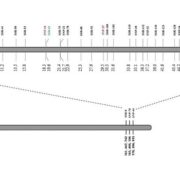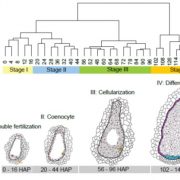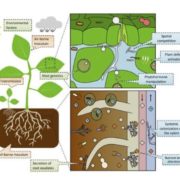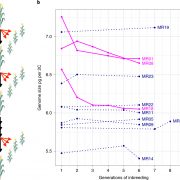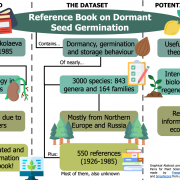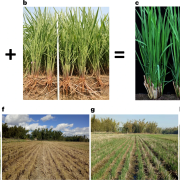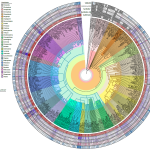Hybrid-derived weedy rice maintains adaptive combinations of alleles associated with seed dormancy (Mol. Ecol.)
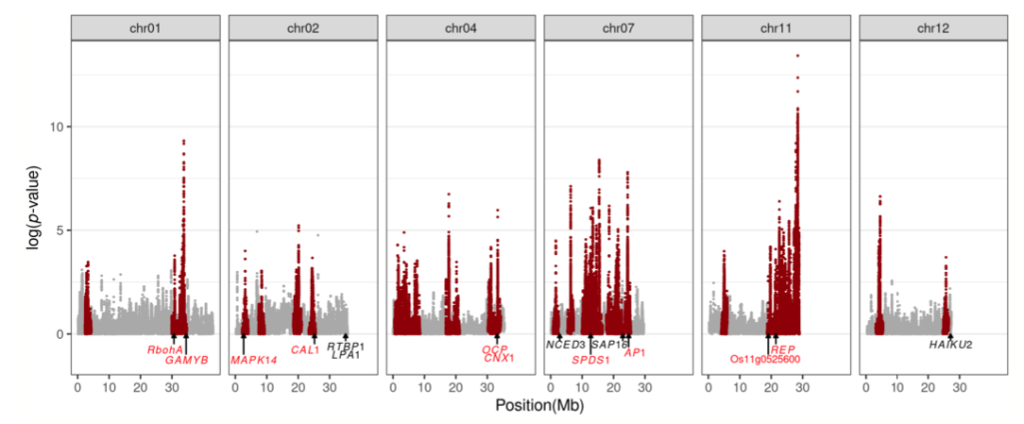 The cross between genetically distant parents is an essential source of genetic variation. This process, known as hybridization, might result in the loss of adaptive gene combinations due to the introduction of non-adaptive alleles. However, Imaizumi and colleagues show this is not the case with weedy rice and seed dormancy. In this study, the authors conduct a thorough genomic analysis of different weedy rice strains from Japan, including one derived from the hybridization of weedy and cultivated rice. Seeds from this hybrid strain exhibited seed dormancy, an adaptive characteristic also found in other weedy rice but not cultivated ones. Accordingly, the hybrid strain was found to have most of the adaptive allele combinations found in their weedy parents, even having equal representation of both parent genomes. The authors suggest that, given its ecological advantages, a positive selection of genes associated with seed dormancy ultimately led to their fixation in the hybrid strain genome. Therefore, this study provides a fascinating example of how adaptive traits can persist in the genome after hybridization. (Summary by Carlos A. Ordóñez-Parra @caordonezparra) Mol. Ecol. 10.1111/mec.16709
The cross between genetically distant parents is an essential source of genetic variation. This process, known as hybridization, might result in the loss of adaptive gene combinations due to the introduction of non-adaptive alleles. However, Imaizumi and colleagues show this is not the case with weedy rice and seed dormancy. In this study, the authors conduct a thorough genomic analysis of different weedy rice strains from Japan, including one derived from the hybridization of weedy and cultivated rice. Seeds from this hybrid strain exhibited seed dormancy, an adaptive characteristic also found in other weedy rice but not cultivated ones. Accordingly, the hybrid strain was found to have most of the adaptive allele combinations found in their weedy parents, even having equal representation of both parent genomes. The authors suggest that, given its ecological advantages, a positive selection of genes associated with seed dormancy ultimately led to their fixation in the hybrid strain genome. Therefore, this study provides a fascinating example of how adaptive traits can persist in the genome after hybridization. (Summary by Carlos A. Ordóñez-Parra @caordonezparra) Mol. Ecol. 10.1111/mec.16709


